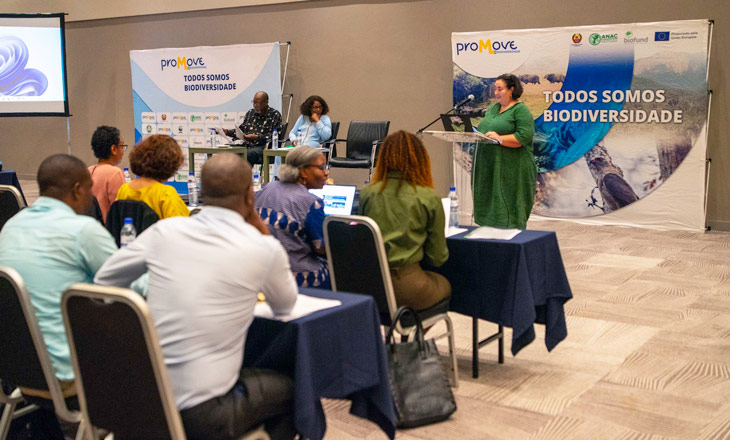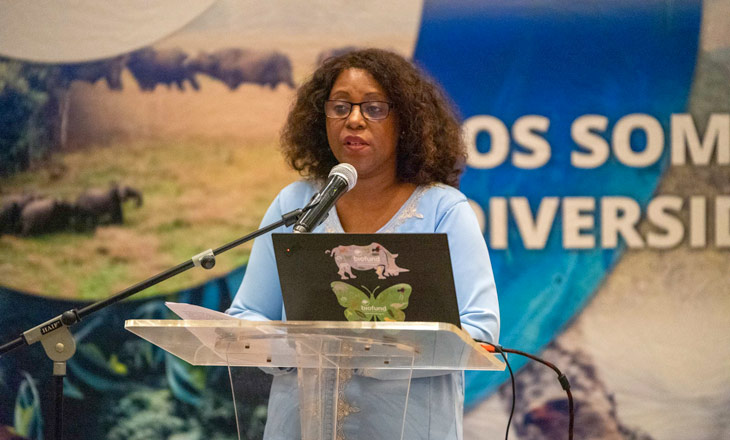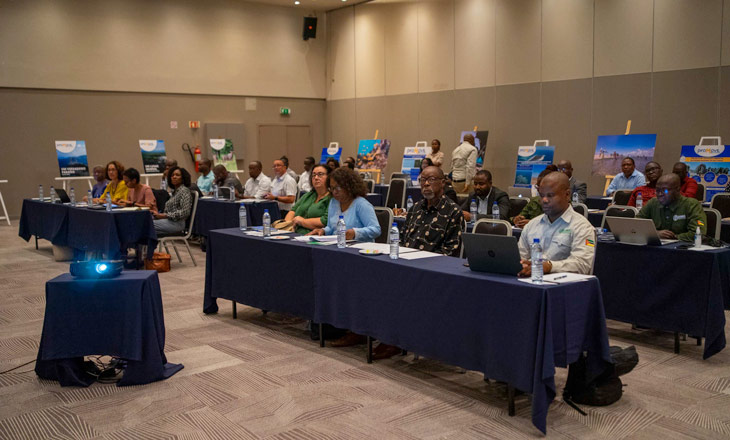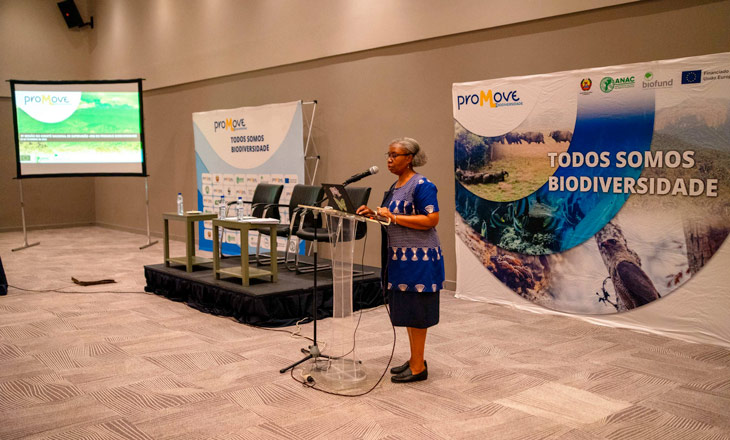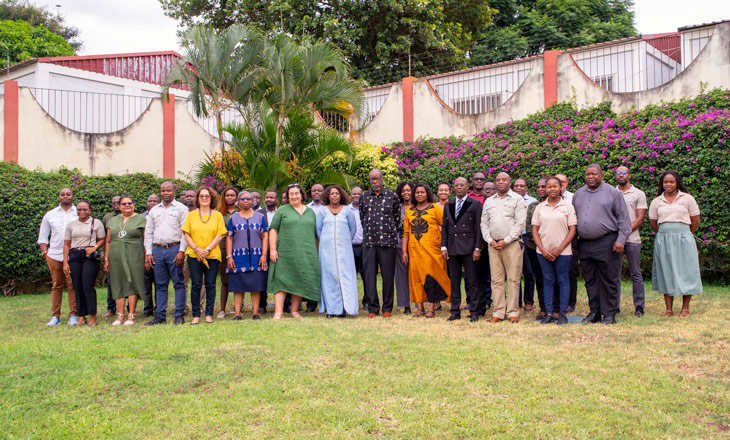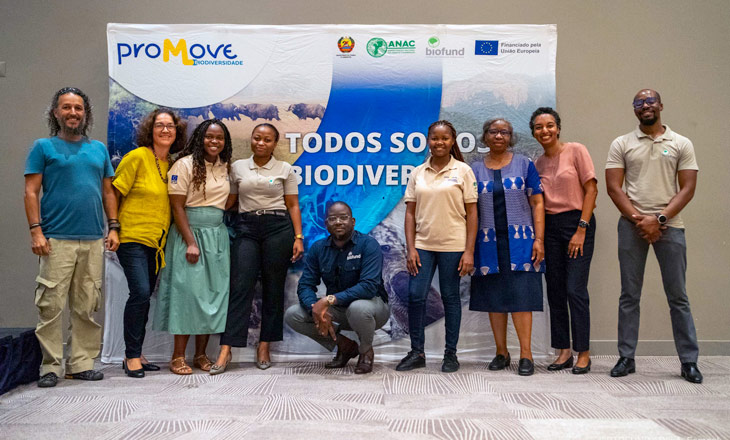The 3rd Session of the National Oversight Committee (NOC) of PROMOVE Biodiversidade, held on February 22, 2024, at the Montebelo Indy Hotel in Maputo, highlighted significant progress in the program’s implementation in the Gilé National Park (PNAG), the Primeiras and Segundas Islands Environmental Protection Area (APAIPS), and Mount Mabu. Funded by the European Union, the PROMOVE Biodiversidade programme aims to strengthen the institutional capacity of ANAC and provide direct support for biodiversity management in the mentioned areas, while promoting the development of local communities.
Published at 27/02/2024
3rd Session of the National Oversight Committee of PROMOVE Biodiversidade Highlights Program Advances in Beneficiary Areas
Led by the Permanent Secretary of the Ministry of Land and Environment, Emilia Fumo, the meeting brought together around 40 participants, including the Acting Director of the National Administration of Conservation Areas (ANAC), the Executive Director of the Biodiversity Conservation Foundation (BIOFUND), the Head of Cooperation of the European Union, Administrators of the Gilé National Park (PNAG) and the Primeiras and Segundas Islands Environmental Protection Area (APAIPS), Directors of Provincial Environmental Services of Nampula and Zambézia, the Director of the District Services of Economic Activities in Lugela, and implementing partners, among others.
This committee, which meets annually, aims to share information on the progress of activities, main challenges, provide guidance, and assess the performance and impact of actions carried out in the beneficiary areas, namely Gilé National Park, the Primeiras and Segundas Islands Environmental Protection Area, and Mount Mabu.
During the event, key results achieved in 2023 were highlighted, such as: i) the full operation of a radio communication system, improving enforcement and operations in Gilé National Park (PNAG), the demarcation of the park’s southern boundary with the construction of around 60 km of access roads, training initiatives in production techniques, and provision of inputs to local producers; ii) the delimitation of the proposed area for conservation and mapping of cultural points of interest in Mount Mabu, aiming to promote sustainable tourism. Additionally, results from research on the impact of wildfires, wildlife reintroduction, population growth and early childbearing in youth from PNAG communities, as well as the hydrological study of Mount Mabu, were shared. These studies are intended to inform decisions for the effective management of these conservation areas.
This session represented an important opportunity for knowledge and experience exchange, fostering sustainable development and biodiversity conservation in the provinces of Zambézia and Nampula.

